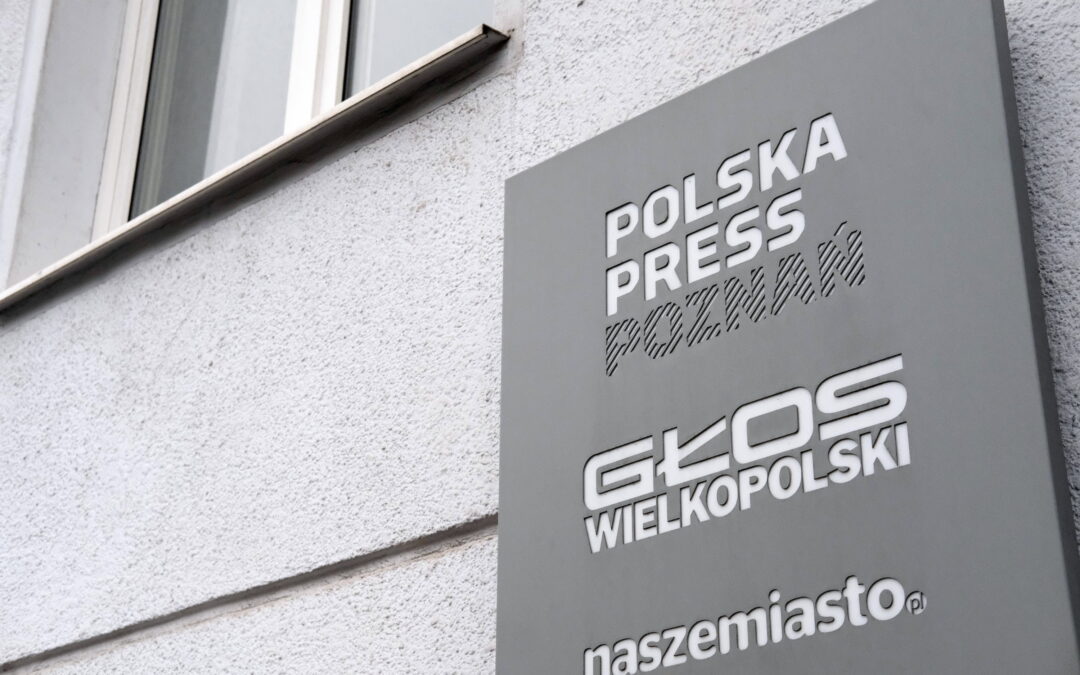Norway’s $1.3 trillion sovereign wealth fund – the largest in the world – has voiced concern over media freedom in Poland following the recent purchase of hundreds of local newspapers and websites by Polish state-owned oil giant Orlen.
The Norwegian fund, which is a minority stakeholder in Orlen, said that there was a “clear expectation” that companies in which it invests “respect basic human rights, including freedom of expression,” reports Press, a Polish media magazine.
Since Orlen’s takeover of Polska Press – which owns 20 out of Poland’s 24 regional daily newspapers, 120 regional weeklies, and hundreds of websites – a number of domestic and international organisations have expressed concerns over the potential for state influence over the group’s titles.
The acquisition of hundreds of media outlets by a Polish state oil firm "violates both EU and Polish merger rules and undermines media pluralism", says a legal opinion published by @article19org, @MediaFreedomEU, @ECPMF, @EFJEUROPE and @globalfreemedia https://t.co/IOfPRJIC79
— Notes from Poland 🇵🇱 (@notesfrompoland) June 15, 2021
Norway’s sovereign wealth fund has since 1990 invested surplus revenues from the country’s petroleum sector. It now holds 1.5% of listed stocks globally but often excludes companies that its council deems to not meet the fund’s ethical guidelines.
It has reportedly become increasingly concerned about Orlen’s 120 million zloty purchase of Polska Press from its previous German owner, in a move that was supported by the ruling Law and Justice (PiS) party as part of its policy to “repolonise” the media by reducing foreign ownership.
Earlier this year, the Press Freedom Committee of the Norwegian PEN Club, an association for writers, issued a letter urging the fund to divest from Orlen if the Polish firm does not “respect” the “functioning of independent media”.
“The takeover of Polska Press caused strong political and legal conflicts,” wrote the NGO. “The opposition, journalists and editors point out that the transaction is an attempt to increase control over the media in Poland by PiS.”
It noted that the fund’s guidelines say “its investments should not contribute to human rights violations or gross violations of ethical standards”.
Poland’s commissioner for human rights, Adam Bodnar, is among those who have criticised the takeover. In a court filing, he warned that it could “transform the free press…into propaganda bulletins” and thereby constitute an “unacceptable restriction on freedom of the press[,]…freedom of expression and [freedom] of obtaining and disseminating information”.
Sigurd Brekke, a representative of the Norwegian central bank, which manages the fund, told Press that it had “conveyed our expectations to Orlen”, including “a clear expectation that the companies (in which the fund invests) respect fundamental human rights, including freedom of expression”.
He said that it was a regular practice for the fund to engage in dialogue with the companies in which it holds shares, and also noted that the takeover of Polska Press was being considered by the ethics committee at Norway’s finance minister, which can issue guidelines on participation in unethical ventures.
The bank has in the past excluded a number of large companies on such grounds, including Boeing and Lockheed Martin (for the production of nuclear weapons) as well as Poland’s largest utilities company, Polska Grupa Energetyczna, since 2017 for its coal production.
Orlen’s CEO, Daniel Obajtek, has justified its takeover of Polska Press as part of a “new business strategy” aimed at gathering user data and diversifying away from oil.
In April, at the request of Bodnar, a Polish court ordered Orlen to suspend the takeover. However, the firm has argued that the case is “obviously unfounded” and has pushed on with its changes at Polska Press.
Separately, the Norwegian foreign minister announced last year that local authorities in Poland that have passed anti-LGBT resolutions will not receive money from the grants that Norway provides to support civil society, the justice system, social inclusion, innovation and other causes.
As a result, some such authorities – which have declared themselves free from “LGBT ideology” – have begun to repeal their resolutions in order not to lose millions in funding.
Main image credit: Piotr Skornicki / Agencja Gazeta

Maria Wilczek is deputy editor of Notes from Poland. She is a regular writer for The Times, The Economist and Al Jazeera English, and has also featured in Foreign Policy, Politico Europe, The Spectator and Gazeta Wyborcza.




















